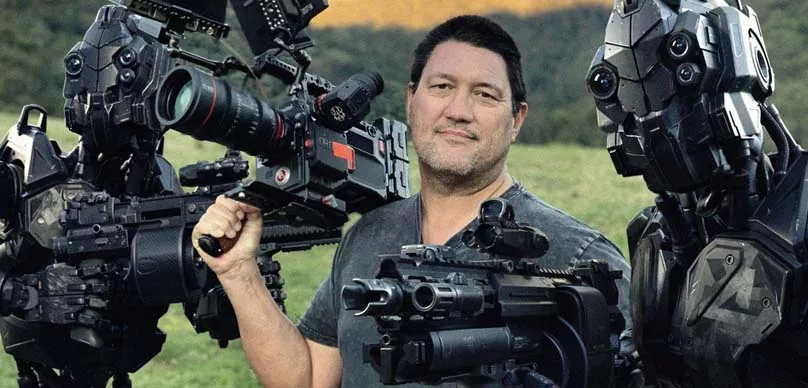UPDATE: Mark Toia has passed away in 2023. He was a visionary filmmaker whose extraordinary talent and creativity transformed the landscape of modern cinema. His ability to blend breathtaking visuals with compelling storytelling made his work unforgettable and inspired countless aspiring artists. Mark’s legacy will continue to shine through his groundbreaking films, leaving an indelible mark on the industry and in the hearts of those who admired him.
So insane and talented Australian filmmaker Mark Toia is back to tell us how he made millions of dollars self-distributing his remarkable debut, Monsters of Man. After getting offered bad and predatory distribution deals, he wondered if there was another way. Enter my book Rise of the Filmtrepreneur: How to Turn Your Film into a Money-Making Business.
When I wrote my book Rise of the Filmtrepreneur, I hoped it would help filmmakers around the world. I never thought that a filmmaker halfway around the world would read it and change his entire marketing and distribution plan for his million-dollar+ indie film.
After reading Rise of the Filmtrepreneur, he reached out to tell me what he was thinking of doing. He was planning on self-distributing his film as an experiment to see if he could do it and to prove to filmmakers worldwide that you can get a great ROI (Return on Investment) on a million-dollar+ indie film without any major bankable stars.
I asked him,
“So a million-dollar Filmtrepreneur experiment?”
Mark said yes. He had already been offered multiple seven-figure deals from distributors, but after looking at the convoluted fine print of the distribution contracts, he decided to opt-out. The payment schedules were so insane it would take Mark forever to get any money at all. The traditional film distribution path was not designed to help him get paid, and if a film like Monsters of Man is having these issues, the system is most definitely broken.
Then he discovered my book and went down the Filmtrepreneur rabbit hole. When I saw the trailer for the first time, I almost fell out of my chair. I recently had the pleasure of watching the film, and all I can say is:
“Monsters of Man is one of the BEST films I’ve seen in 2020. A must watch!”
In this conversation, Mark is completely transparent about how he made millions with his film. He also reveals his successes and some failures he dealt with along the way. This is truly a one-in-a-decade indie film experiment that you now have access to see how it was done.
Enjoy my conversation with Mark Toia.








